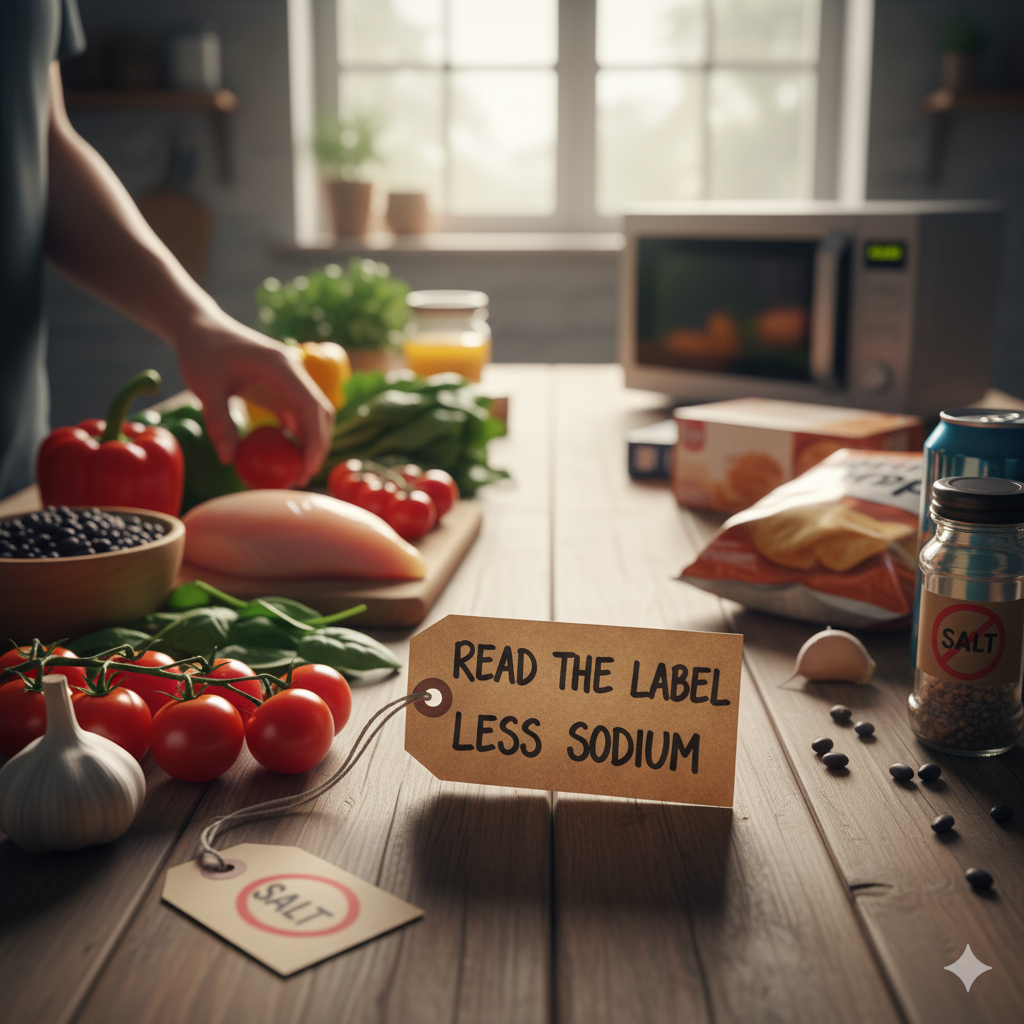
One could easily feel trapped in a never-ending loop of convenience. We mistakenly believe that fast microwave meals, packaged snacks, and takeaway from restaurants are time-saving options. However, our daily energy and long-term health frequently suffer as a result of this dependence on convenience foods. Cutting back on sodium and highly processed foods isn’t about following a rigorous, challenging diet; rather, it’s about making thoughtful, educated decisions that shield us from the wearying rollercoaster of energy dips and the quiet dangers of chronic illness. One of the most effective, quick changes you can make to your wellbeing is to intentionally move away from the grocery store’s middle aisle.
Processed goods that contain concealed hazards are frequently the worst offenders. Your health is directly threatened by foods that are heavy in fat, sugar, and artificial flavors and colors. For example, eating too much deep-fried foods and fast food is associated with a higher risk of cancer, heart disease, and obesity. These meals, which are made to be extremely tasty, upset the balance of our energy systems and raise our risk of non-communicable diseases. The change is straightforward: wherever feasible, strive to eat natural, fresh food and reduce your intake of fake and fast meals.
Sodium, or salt, is frequently the most pernicious of these offenders. The amount of salt concealed in frozen meals, packaged items, and even purportedly healthful snacks is often underestimated. Consuming too much salt is directly associated with a higher chance of high blood pressure, a disorder that severely strains the heart and circulatory system. It is recommended that people consume no more than one teaspoon (five grams) of salt each day. In order to achieve this, you must deliberately check the labels of all processed foods to make sure you remain within that tiny, safe range and quit salting food out of habit.
In the end, this deliberate act of reduction is the first step towards taking charge of your nutrition. You become an active participant in your own health journey instead of just a passive consumer. By regularly selecting whole, fresh products and carefully avoiding processed foods that are heavy in fat, sugar, and salt, you may avoid the energy slumps and health hazards that come with convenience eating. The purest form of self-respect is this dedication to mindful eating, which guarantees your body the healthy nourishment it requires to maintain your energy levels and safeguard your long-term health.
